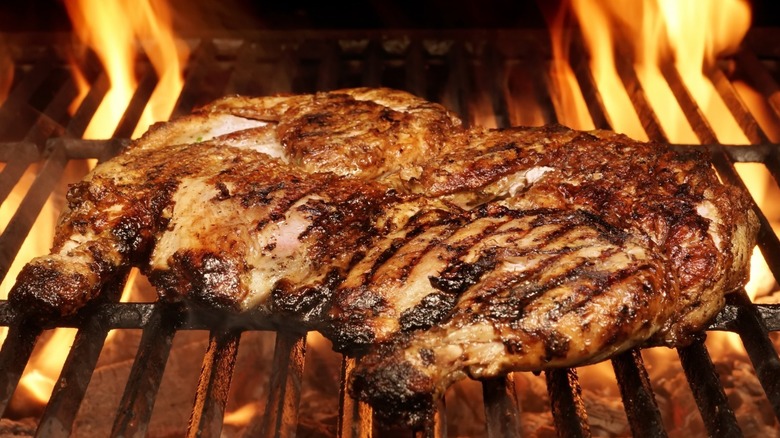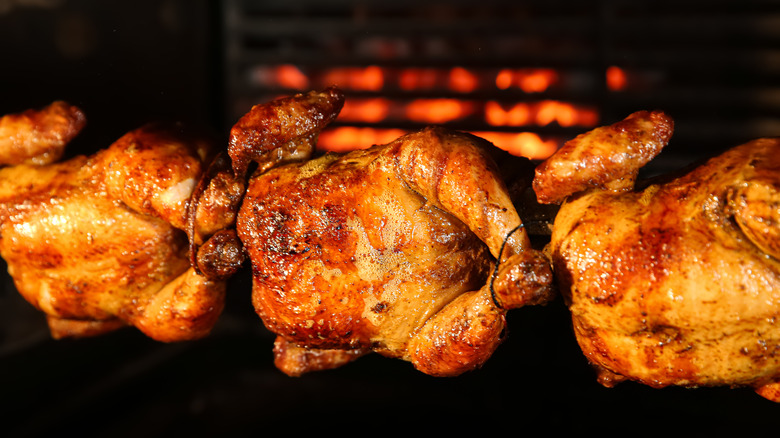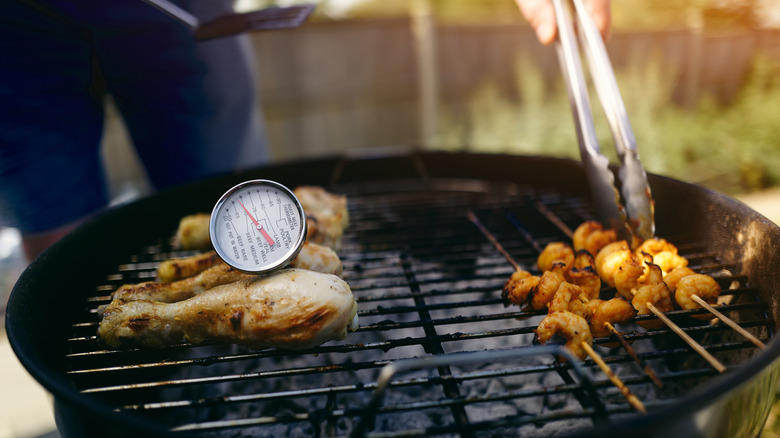How To Grill Chicken The Right Way, According To An Expert
Grilled chicken doesn't seem like too complicated a meal. Just toss a piece of chicken on a grill, make sure it doesn't burn, and then drench it in as much barbecue sauce as you can handle. But when it comes down to putting that bird down on the grill, there are some things you need to know. For example, should you cook a chicken breast longer than a chicken thigh? How often should you add sauce, or should you wait until the chicken is off the grill to keep the sauce from burning?
While there are questions when it comes to preparing poultry on the grill, there are a few experts willing to lend some advice. Food Network suggests using skin-on, "bone-in" chickens rather than skinless and boneless breasts, as these are much more flavorful and juicy. Chef Works advises you to salt and brine your chicken to help ensure moisture isn't lost, preventing you from eating dry, stringy chicken. Although these are all sound pieces of advice, how exactly can you get the most flavorful, perfectly grilled chicken the right way, every time?
A Perdue executive chef has the answer to this very question.
Focus on marinating and seasoning
According to Chris Moyer, an executive chef for Perdue Farms, the trick to getting the most flavor out of your grilled chicken involves focusing on ensuring the chicken is properly seasoned and marinated. Moyer explains that before the chicken is even on the grill, it's best to season it as liberally as possible, as some of the seasonings will burn off during grilling. If you're using a leaner cut of meat, Moyer suggests brining.
"Brining can help penetrate the meat so the tenderizing agent and flavors can do their thing, making the end result that much more juicy," Moyer tells Mashed. "Generally, a fattier cut of meat does not need to be brined because it has plenty of fat within to help with juiciness."
Moyer does warn that you should be a bit more careful when it comes to marinating. Over-marinating, Moyer explains, can lead to the meat fibers within the chicken dissolving. This could lead to the dreaded "mushy" chicken since so much liquid has been absorbed. While Moyer never gives an exact time frame as to how long you should marinate your chicken, BBC Good Food suggests five to six hours with a maximum of 24 hours. If you're grilling your meat for a long time, Moyer suggests spraying it down every so often with a liquid such as apple juice to prevent it from drying out.
Using a meat thermometer is key for grilling
If you aren't using a meat thermometer when you grill out, consider this your sign to start. "A probe thermometer is one of the most important grilling tools in your arsenal," says Perdue Farms executive chef Chris Moyer.
"When it comes to grilling chicken, remember it's all about temperature, not time," Moyer adds. "Especially because chicken is not equally sized, and smaller pieces get cooked through way before the larger ones." If your method of checking meat doneness levels is simply eyeballing it, there's a better way.
"Place your thermometer in the thickest part of the cut, without touching bone, to get the best reading," Moyer advises. It's not just a matter of taste, either — using a meat thermometer will ensure your chicken is fully cooked and safe to eat. The CDC recommends cooking poultry to a minimum temperature of 165 F.


